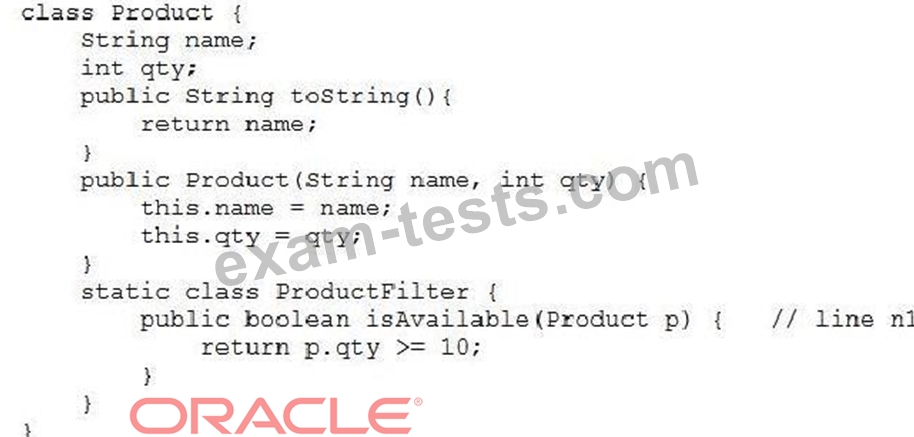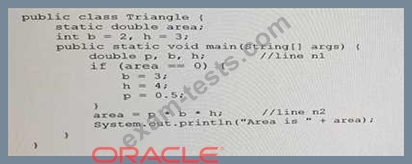Question 41
Given the code fragments:
class Caller implements Callable<String> {
String str;
public Caller (String s) {this.str=s;}
public String call()throws Exception { return str.concat ("Caller");}
}
class Runner implements Runnable {
String str;
public Runner (String s) {this.str=s;}
public void run () { System.out.println (str.concat ("Runner"));}
}
and
public static void main (String[] args) throws InterruptedException, ExecutionException { ExecutorService es = Executors.newFixedThreadPool(2); Future f1 = es.submit (new Caller ("Call")); Future f2 = es.submit (new Runner ("Run")); String str1 = (String) f1.get(); String str2 = (String) f2.get();//line n1 System.out.println(str1+ ":" + str2);
}
What is the result?
class Caller implements Callable<String> {
String str;
public Caller (String s) {this.str=s;}
public String call()throws Exception { return str.concat ("Caller");}
}
class Runner implements Runnable {
String str;
public Runner (String s) {this.str=s;}
public void run () { System.out.println (str.concat ("Runner"));}
}
and
public static void main (String[] args) throws InterruptedException, ExecutionException { ExecutorService es = Executors.newFixedThreadPool(2); Future f1 = es.submit (new Caller ("Call")); Future f2 = es.submit (new Runner ("Run")); String str1 = (String) f1.get(); String str2 = (String) f2.get();//line n1 System.out.println(str1+ ":" + str2);
}
What is the result?
Question 42
Given:
public class Customer {
private String fName;
private String lName;
private static int count;
public customer (String first, String last) {fName = first, lName = last;
+ +count;}
static { count = 0; }
public static int getCount() {return count; }
}
public class App {
public static void main (String [] args) {
Customer c1 = new Customer("Larry", "Smith");
Customer c2 = new Customer("Pedro", "Gonzales");
Customer c3 = new Customer("Penny", "Jones");
Customer c4 = new Customer("Lars", "Svenson");
c4 = null;
c3 = c2;
System.out.println (Customer.getCount());
}
}
What is the result?
public class Customer {
private String fName;
private String lName;
private static int count;
public customer (String first, String last) {fName = first, lName = last;
+ +count;}
static { count = 0; }
public static int getCount() {return count; }
}
public class App {
public static void main (String [] args) {
Customer c1 = new Customer("Larry", "Smith");
Customer c2 = new Customer("Pedro", "Gonzales");
Customer c3 = new Customer("Penny", "Jones");
Customer c4 = new Customer("Lars", "Svenson");
c4 = null;
c3 = c2;
System.out.println (Customer.getCount());
}
}
What is the result?
Question 43
Given:

and the code fragment:

Which modification enables the code fragment to print Speaker?

and the code fragment:

Which modification enables the code fragment to print Speaker?
Question 44
Given:

What is the result?

What is the result?
Question 45
Given the code fragment:
List<Integer> nums = Arrays.asList (10, 20, 8):
System.out.println (
//line n1
);
Which code fragment must be inserted at line n1to enable the code to print the maximum number in
the numslist?
List<Integer> nums = Arrays.asList (10, 20, 8):
System.out.println (
//line n1
);
Which code fragment must be inserted at line n1to enable the code to print the maximum number in
the numslist?

